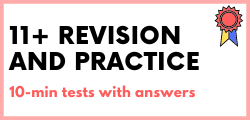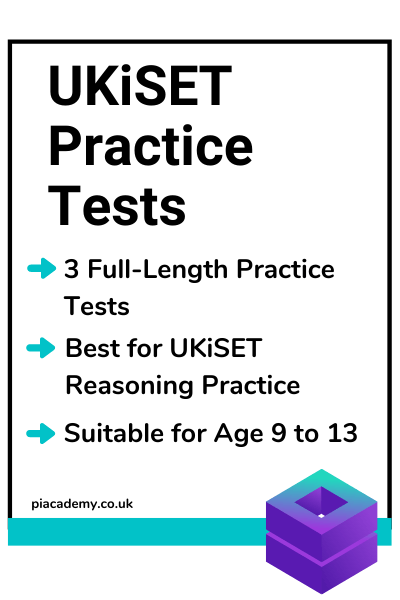What is UKiset?
UKiset stands for UK Independent Schools’ Entry Test. An online test, it can be taken by students in the age range of nine to eighteen and is often a determining factor in admission to schools in the UK. Many schools require that the UKiSET test be taken in order to determine if a student qualifies for admission. Other schools may not require the test to be taken but may use the results of the test in conjunction with their own test to determine the suitability of a candidate for admission.
In addition to being a threshold for admission, UKiset exam results also serve as a guide to teachers for mapping a student’s further progress at school. It is thus a valuable tool in identifying a student’s existing abilities, language proficiency and numerical ability, as well as assessing a future course of study for the student.
The test fee is £295 and includes the sending of the result – called a Profile Report – to five schools that one can specify at the time of registration. More schools can be added at the rate of £50 per school.
What are the Ukiset’s components?
The UKiset test has three main sections, Reasoning, Language (the Cambridge Test) and Essay writing.
Reasoning
The Reasoning section takes forty-five minutes to complete and is further divided into:
- Verbal reasoning: To test a candidate’s ability to apply logic using language. It is thus a test of problem-solving using words.
- Non-verbal reasoning: In this subsection, a student is tested on his or her ability to apply logic to solve problems involving shapes and patterns. Shapes may have to be manipulated mentally in both, two and three dimensions.
- Numerical reasoning (UKiset Maths): The student is tested on his or her expertise in solving problems based on numbers.
Cambridge English Test
This is a standardised test designed to gauge a student’s proficiency with the English language. It is an online exam with multiple choice questions and lasts thirty minutes.
It is thus a practical way to determine if a student has the requisite English language skills to be able to study in a school in the UK.
Essay Writing
In this section of the UKiset exam, a candidate is given a topic on which he or she is expected to write an essay within forty-five minutes. The Ukiset essay must be written by hand. It tests not only the candidate’s proficiency in English but also the ability to analyse a topic, enumerate its pros and cons, state opinions, and argue logically and effectively to defend those opinions.
How does one prepare for the Reasoning Section?
Firstly, it is important to understand just how the UKiset Reasoning test is conducted. The test is conducted online, so it is important that the candidate be familiar with online tests. The test is adaptive, meaning that as a candidate answers questions correctly, they will get progressively more difficult. Conversely, if a candidate answers questions incorrectly, the test will get easier. It is therefore important for an aspirant to get a real feel of the test so that he or she does not get rattled if the questions become more difficult.
Online sample tests are an excellent way for a candidate to prepare for the Reasoning Section of the UKiset test. The tests closely resemble the actual UKiset test – although the questions are indicative rather than actual questions from past tests – so the aspirant gets a feel of the way the real test will be conducted.
Aspirants are well-advised to focus on both, pace and exactitude in answering this section of the test, whether it is the verbal, non-verbal or numerical sub-section. Too often, students tend to get caught up in the speed aspect of the test, sacrificing much-needed accuracy. It is important to remember that the actual UKiset test does not permit candidates to review or amend their answers. Therefore, getting spellings and grammar right the first time is as important as completing the test within the given time frame.
Fortunately, the more a student practises, the better he or she tends to get at balancing these two crucial aspects of the test. Therefore, it is recommended that aspirants practise regularly and often, using sample papers, to be able to confidently tackle this aspect of the UKiset.
For the verbal sub-section, students need to practise speed reading and writing, at the same time ensuring that grammar and spelling do not suffer. For the non-verbal aspect, students need to practise visualising shapes and patterns in two-and-three dimensions. For the numerical feature, mental mathematical practises will help immensely.
What tips help in the Cambridge Language test?
The Cambridge Language test is a standardised test developed to test a candidate’s proficiency with the English language. The test has a reading as well as listening component, so aspirants need to develop their skills in both aspects.
Sample papers are available to help a student prepare for the test. Cambridge itself offers free online practice tests to help a student prepare for this section of the UKiset.
Sample papers, however, serve mainly to hone the students’ capabilities and cannot replace a thorough grounding in reading and listening skills. Therefore, candidates are well-advised to put in as much effort into reading and listening as possible, drawing from a wide variety of sources. For reading, students can refer to blog posts, editorials, op-ed pieces, online stories, novels, etc. For listening, candidates may subscribe to podcasts, YouTube channels, Audiobooks, etc.
The more one develops reading and listening habits, the better one gets at absorbing language organically, and thus speaking and writing in a natural yet accurate manner. It is important to remember that the UKiset test is designed to judge a candidate’s ability to fit into the UK school system, of which language is a very important aspect.
How can one tackle the Essay?
The UKiSET essay section of the test can be quite a challenge but, with adequate preparation, is quite easily tackled.
First of all, it is important to understand just what the assessors are looking for in the essay submitted by a candidate. Specifically, the essay test seeks to judge the following:
- Logical composition: The essay must be clearly divided into a beginning, a middle – the real “meat” of the essay – and a conclusion. At the same time, the essay must read as a coherent piece and not appear broken up.
- Exposition and arguments: The candidate must be able to enumerate the various aspects of the topic – including pros and cons – and state a distinct opinion about the topic. This opinion must be defended with clear and logical arguments.
- Exactitude: The aspirant must pay attention to grammar, spelling and punctuation. It is important to bear in mind that this part of the test has to be handwritten, so neatness is an important factor. Too many word corrections will also have a negative effect on the assessment.
Now that the requirements are clear, it is easy to see that extensive practice is required in order to face this section confidently. Sample essay topics are available to help the student practise the writing of essays that cover the essential aspects detailed above.
In general, aspirants are well-advised to follow the general path of ideation, filtration and polishing, as detailed below:
- Ideation: In this phase of the essay-writing exercise, the student focuses only on generating as many ideas on the topic as possible. These ideas must be written down prior to actually beginning the writing of the essay. The aim at this point is to put down as many points related to the topic as possible, even if some of them sound ridiculous.
- Filtration: In this phase, the essay-writer eliminates obviously bad ideas and narrows the list down to the ideas that most closely relate to the topic. It is at this point that the student also organises the points in logical order, so that the final essay reads as one smooth piece of writing.
- Polishing: Although the test is time-bound, the aspirant is well-advised to take just a minute or two to read over the points and let the mind organise them into a final essay. The more one practises this technique, the easier it gets to write an essay that flows from point to logical point.
In writing the essay, the candidate must also ensure that the work is grammatically correct and free of spelling mistakes. Vocabulary used must be appropriate to the age slab into which the aspirant fits.
And finally…
The UKiset is an important exam for any student aspiring to study in the UK. The test has been developed to thoroughly evaluate a candidate’s reasoning and linguistic abilities, as well as the ability to form a smooth, concise and coherent response to an essay-writing topic.
UKiset mocks tests and sample papers, available online in computer-based and pdf formats, help the candidate prepare for the exam. These practice papers help an aspirant get familiar with the format of the test, including the kind of questions that may be asked. Regular practice helps the student absorb the format of the test, thus increasing confidence and accuracy.
Developing the reading and listening habits help the student absorb language organically, thus preparing him or her to confidently tackle the three sections of the UKiset exam.

















































